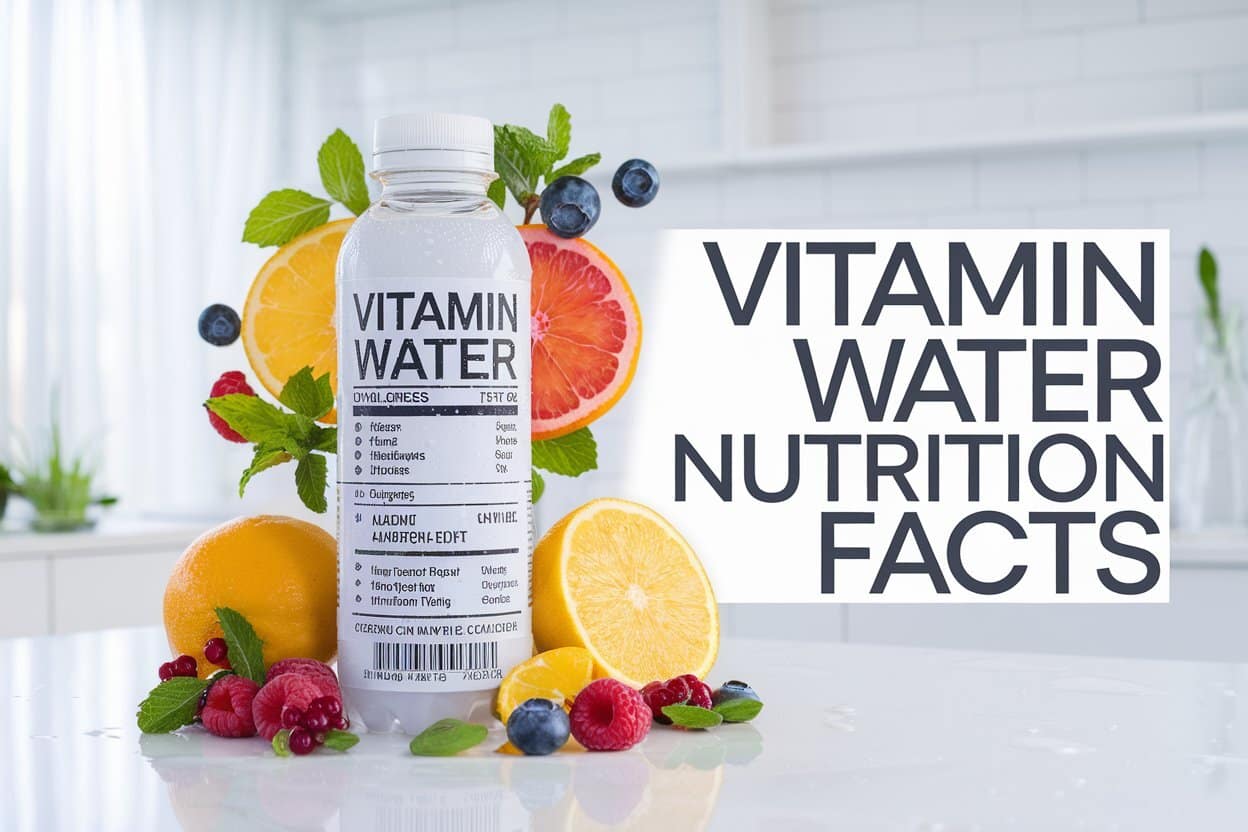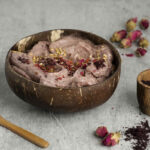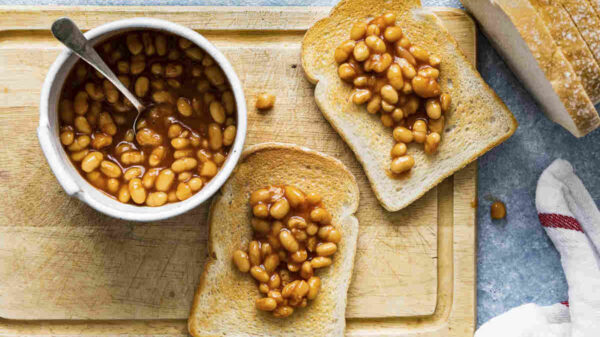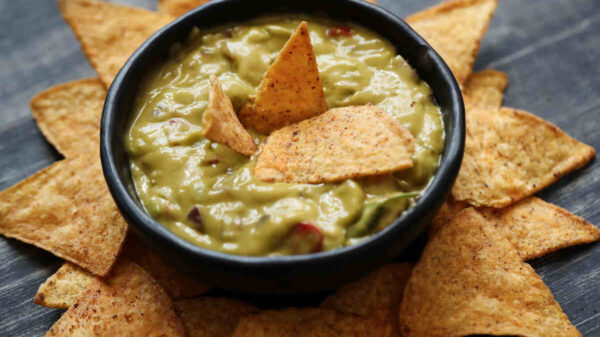In today’s health-conscious world, Vitamin Water has become popular among consumers seeking a refreshing alternative to sugary sodas. Marketed as a drink that not only hydrates but also provides essential vitamins, Vitamin Water is an ideal option. However, looking closer at the facts about vitamin water nutrition facts, you might be surprised by what you find. We’ll go into great detail about Vitamin Water’s nutritional makeup in this blog post, its potential health benefits, and the concerns associated with it.
What is Vitamin Water?
Vitamin Water is a flavored water beverage brand introduced by Glacéau, a subsidiary of The Coca-Cola Company. It was launched as a beverage that quenches thirst and supplies various vitamins and minerals. Over the years, Vitamin Water now comes in a wider choice of tastes and formulas, some of which are marketed as zero-calorie options or energy-boosting drinks.
However, the question remains: Is Vitamin Water a healthier option, or is it another sugary drink with a healthy halo? To answer this, we need to delve into the facts about vitamin water nutrition and understand what each bottle contains.
Breaking Down the Vitamin Water Nutrition Facts
| Nutrient | Amount per Serving (20 FL Oz / 591 ml) | % Daily Value |
|---|---|---|
| Calories | 120 | – |
| Total Fat | 0g | 0% |
| Sodium | 0mg | 0% |
| Total Carbohydrates | 32g | 11% |
| Dietary Fiber | 0g | 0% |
| Total Sugars | 32g | – |
| Added Sugars | 32g | 64% |
| Protein | 0g | 0% |
| Vitamin C | 90mg | 100% |
| Vitamin B3 (Niacin) | 20mg | 125% |
| Vitamin B5 (Pantothenic Acid) | 10mg | 200% |
| Vitamin B6 | 2mg | 120% |
| Vitamin B12 | 6mcg | 250% |
| Potassium | 60mg | 2% |
| Magnesium | 20mg | 5% |
When examining the facts about vitamin water nutrition, It’s crucial to remember that the amount can change based on the particular flavor and kind of vitamin water. For the purpose of this analysis, we’ll focus on the standard 20 FL Oz (591 ml) bottle, which is the most common serving size.
Calories and Sugar Content
One of the first things you’ll notice on the Vitamin Water nutrition facts label is the calorie content. A typical 20 FL Oz bottle contains approximately 120 calories. The majority of these calories come from sugars, which is a significant aspect to consider.
Each bottle usually contains about 30-32 grams of sugar, equivalent to around 7-8 teaspoons. To put this in perspective, males should not consume more added sugar than Nine teaspoons (36 grams) of additional sugar each day. In comparison, women should limit their intake to 25 grams (6 teaspoons). This means that just one bottle of Vitamin Water can exceed or nearly meet the daily sugar limit, depending on your gender.
Vitamins and Minerals
Despite the high sugar content, Vitamin Water offers significant vitamins. One of its main selling points of the typical vitamins and minerals found in a standard Vitamin Water bottle:
- Vitamin C: Typically, a bottle provides 100% of the daily suggested value of Vitamin C. This vitamin is necessary for iron absorption, skin health, and immune system function.
- B Vitamins: Vitamin Water is usually fortified with several B vitamins, including B3 (Niacin), B5 (Pantothenic Acid), B6 (Pyridoxine), and B12 (Cobalamin). These vitamins are essential for the production of red blood cells, cognitive function, and energy metabolism.
- Electrolytes: Some varieties of Vitamin Water include electrolytes like potassium and magnesium, essential for maintaining hydration, especially during or after exercise.
While these vitamins and minerals are beneficial, it’s important to remember that they are readily available from a balanced diet, often without added sugars.
Other Ingredients
In addition to the vitamins and minerals, the Vitamin Water nutrition facts label reveals other ingredients such as:
- Crystalline Fructose and Cane Sugar: These are the primary sources of sugar in Vitamin Water. Corn is the source of the sweetener crystalline fructose, and cane sugar is a more natural sweetener.
- Citric Acid: Used for taste and as a preservative, citric acid gives Vitamin Water its tangy taste.
- Natural Flavors: These are flavoring agents derived from natural sources, often fruit extracts.
- Color Additives: Vitamin Water may contain color additives to enhance its aesthetic appeal depending on the flavor.
Health Benefits of Vitamin Water
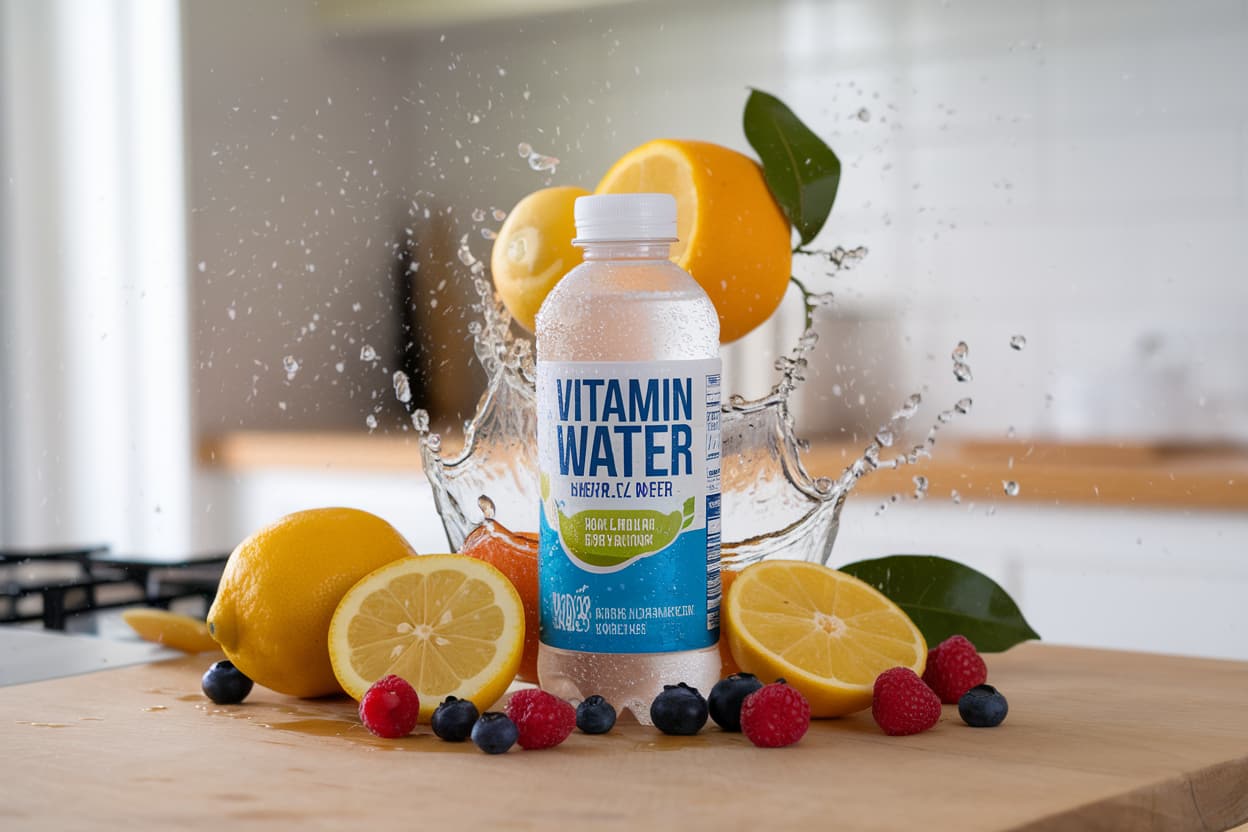
Vitamin Water offers some health benefits, given the vitamins and minerals it contains. However, these benefits must be weighed against the high sugar content and the overall nutritional profile.
Vitamin Supplementation
For individuals who have difficulty obtaining sufficient vitamins from their diet, Vitamin Water can be a convenient way to supplement their intake. This is particularly true for the B vitamins and Vitamin C, essential for energy production, immune function, and overall health.
Hydration with Electrolytes
Certain types of Vitamin Water, such as those labeled as “Energy” or “Recover,” contain added electrolytes like potassium and magnesium. These can help replenish lost electrolytes after intense physical activity, making Vitamin Water a potential option for post-workout hydration.
A Healthier Alternative to Soda?
When comparing the Vitamin Water nutrition facts to those of traditional sodas, it’s clear that Vitamin Water contains fewer calories and more nutrients. However, this doesn’t necessarily make it a “healthy” beverage. While it may be a slightly better choice than soda, the high sugar content still poses significant health risks.
Health Concerns and Risks
While Vitamin Water has some benefits, several health concerns are associated with its consumption, largely due to its sugar content.
High Sugar Content
As mentioned earlier, a standard bottle of Vitamin Water contains about 30-32 grams of sugar. Frequent intake of high-sugar beverages has been connected to a number of health problems, such as heart disease, type 2 diabetes, and obesity. The empty calories from sugar can also contribute to weight gain, as they add to your daily caloric intake without providing significant nutritional value beyond the added vitamins.
Misleading Marketing
Vitamin Water is often marketed as a healthy beverage, which can be misleading. The term “vitamin” in the name might lead consumers to believe that the drink is a healthful choice, but the high sugar content tells a different story. It’s important to read the Vitamin Water nutrition facts and understand that the vitamins and minerals provided can be easily obtained from whole foods without the added sugars.
Artificial Ingredients in Low-Calorie Versions
Vitamin Water Zero, the zero-calorie version of the drink, contains artificial sweeteners like erythritol and stevia. While these sweeteners are generally considered safe, The implications of these on long-term health are still up for dispute. Some people may experience digestive issues from consuming erythritol, and the impact of long-term consumption of artificial sweeteners is still being studied.
Comparing Vitamin Water to Other Beverages
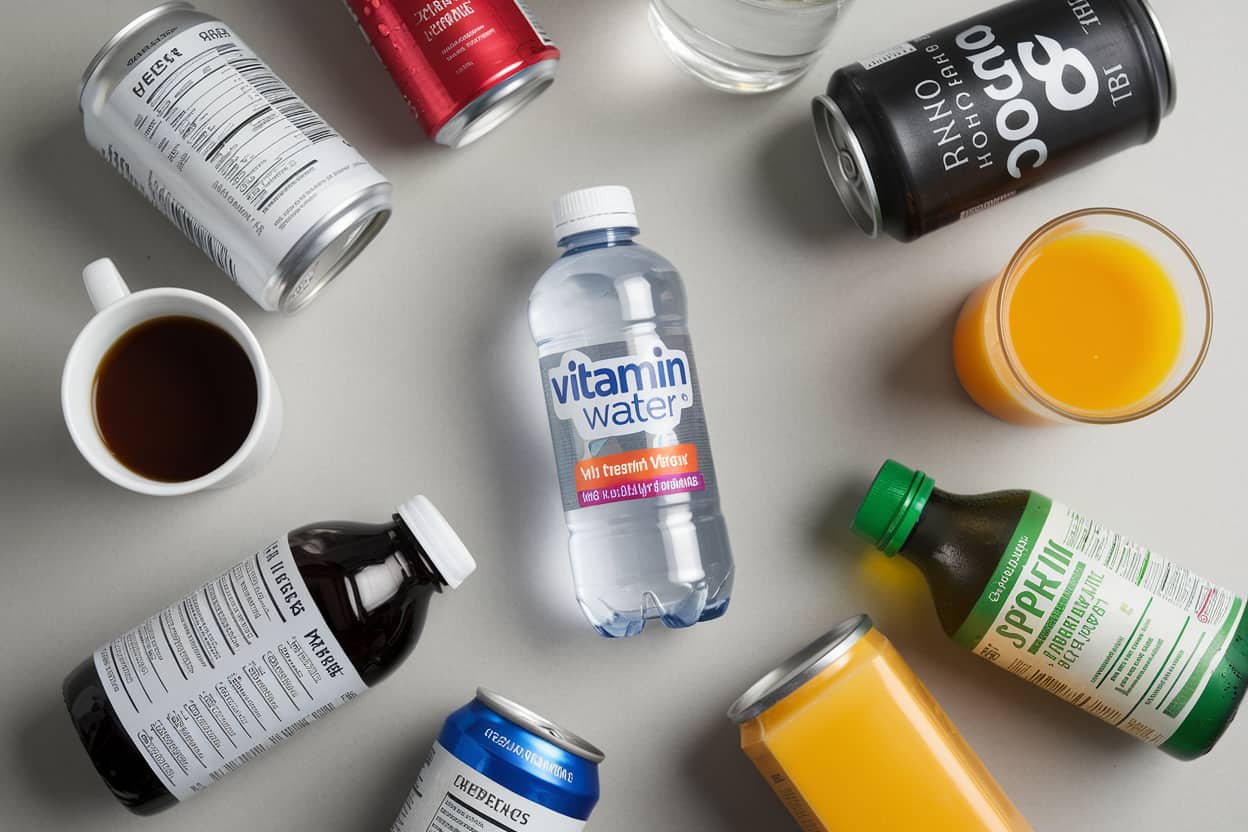
Comparing vitamin water nutrition with that of other popular beverages can help one better understand the facts about vitamin water nutrition.
Vitamin Water vs Plain Water
For hydration, plain water is the best option. It contains no calories, sugars, or artificial ingredients. While Vitamin Water provides vitamins and electrolytes, these nutrients can easily be obtained from a balanced diet. For daily hydration, plain water remains the healthiest choice.
Vitamin Water vs Sports Drinks
Sports drinks like Gatorade are designed to replenish electrolytes lost during intense exercise. They often contain similar amounts of sugar as Vitamin Water but typically have higher levels of electrolytes like sodium and potassium. A sports drink might be more beneficial if you engage in prolonged or high-intensity exercise. However, the added sugars in sports drinks and Vitamin Water can be excessive for casual hydration.
Vitamin Water vs Sodas
Vitamin Water has an edge over sodas in terms of nutrient content. Sodas are typically loaded with sugar and offer no nutritional benefits. However, the high sugar content in Vitamin Water makes it an ideal choice, especially for those who want to reduce their sugar intake.
Tips for Consumers- Making Healthier Choices
If you enjoy Vitamin Water but are concerned about the sugar content, here are a few tips to help you make healthier choices:
- Choose Vitamin Water Zero: If you’re looking to reduce sugar intake, opt for the zero-calorie version. While it contains artificial sweeteners, it eliminates the added sugars found in regular Vitamin Water.
- Dilute with Water: You can dilute Vitamin Water with plain water to reduce the sugar content per serving while still enjoying the flavor and vitamins.
- Limit Consumption: Treat Vitamin Water as an occasional drink rather than a daily hydration solution. This way, you can enjoy the benefits without overloading with sugar.
- Make Your Own Infused Water: Create vitamin-infused water by using slices of fruits like lemon, cucumber, or berries to plain water. This provides a refreshing, low-calorie alternative with natural flavors.
Conclusion
Vitamin Water may seem like a health-conscious choice at first glance, but a closer look at the facts about Vitamin Water Nutrition reveals a more complex picture. While it does provide essential vitamins and can serve as a better alternative to sodas, its high sugar content makes it less than perfect for daily consumption.
For most people, the vitamins found in Vitamin Water can be easily obtained from a balanced diet without the added sugars. If you do choose to drink Vitamin Water, it’s best to do so in moderation and with a full understanding of its nutritional profile. Ultimately, plain water remains the best choice for hydration, with the occasional Vitamin Water serving as a treat rather than a staple.
Frequently Asked Questions (FAQs)
Vitamin Water is a flavored water beverage that is fortified with vitamins and minerals. It is designed to provide hydration while offering additional nutrients, often in the form of added vitamins such as B vitamins and vitamin C.
A standard 20 fl oz (591 ml) bottle of Vitamin Water contains approximately 120 calories.
Yes, Vitamin Water contains sugar. A 20 fl oz bottle typically contains around 32 grams of sugar, which includes both natural and added sugars.
Yes, there are zero-calorie and sugar-free options available, such as Vitamin Water Zero, which uses artificial sweeteners instead of sugar.
Vitamin Water commonly includes vitamins such as Vitamin C, B vitamins (B3, B5, B6, and B12), and occasionally other nutrients like potassium and magnesium.
While Vitamin Water does provide certain vitamins and minerals, it also contains sugar and calories, which can contribute to weight gain if consumed in excess. It’s important to read the label and consider Vitamin Water as part of a balanced diet.
Yes, Vitamin Water can help with hydration as it provides fluids. However, it should not replace plain water, especially for those monitoring their sugar intake.
No, Vitamin Water does not contain dietary fiber. It is primarily a source of hydration and vitamins, not fiber.
Vitamin Water and sports drinks both provide hydration and some nutrients, but sports drinks typically contain electrolytes like sodium and potassium, which are designed to replenish what is lost through sweat during exercise. Vitamin Water focuses more on vitamins and has varying amounts of sugar depending on the product line.
Vitamin Water may be suitable for individuals looking to add some vitamins to their diet or those who prefer flavored beverages. However, people with specific dietary needs or those managing their sugar intake should consume it in moderation or opt for sugar-free versions.

